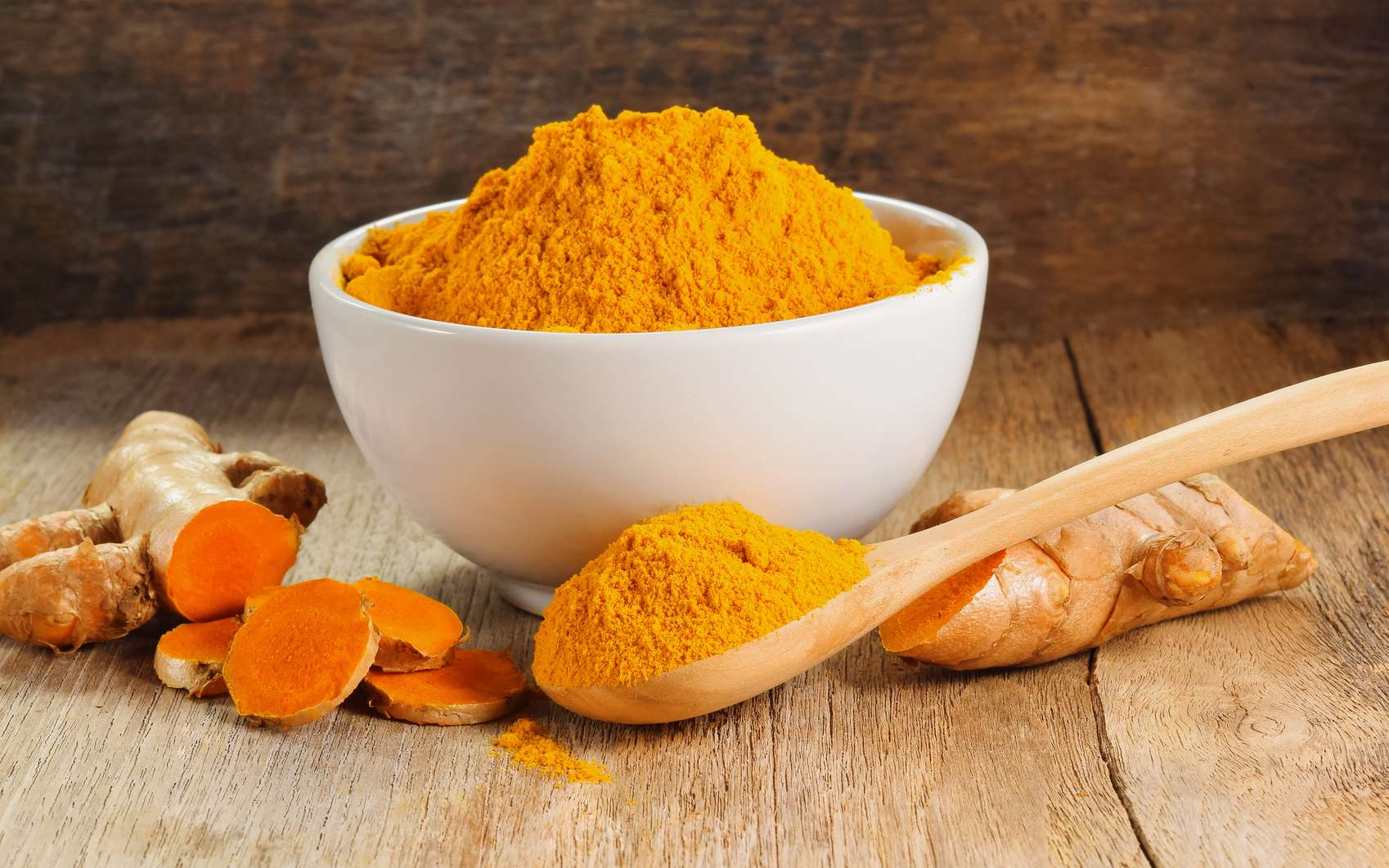Turmeric, often referred to as “yellow gold,” is more than just a brightly colored spice.
Used for thousands of years in traditional Indian and Chinese medicine, it is now widely recognized for its health benefits.
In addition to its culinary properties, this ingredient has become a key asset in the field of well-being and herbal medicine.
Origin and Composition of Turmeric
Turmeric (Curcuma longa) is a perennial herb native to India and Southeast Asia.
It is the rhizome, or root, which is used in powder form for its medicinal and nutritional properties.
It belongs to the same family as ginger and contains essential active compounds such as curcumin, essential oils and powerful antioxidants.
Curcumin, in particular, is at the center of research for its beneficial effects on health.

1. A Natural Anti-Inflammatory
Turmeric is widely used for its anti-inflammatory properties. Curcumin, its main active component, inhibits molecules responsible for inflammation in the body, making it a natural alternative to conventional anti-inflammatory drugs.
This ability is particularly beneficial for people suffering from chronic diseases such as arthritis(
2. Powerful Antioxidant
The antioxidants in turmeric play a key role in protecting the body from free radicals, which can damage cells and promote the development of chronic diseases.
By incorporating turmeric into your diet, you are strengthening your body’s ability to neutralize these free radicals and slow down the cellular aging process.
3. Digestive Support
Turmeric is also known for its beneficial effects on digestion. It stimulates the production of bile, thus facilitating the digestion of fats and reducing symptoms of bloating or indigestion.
The World Health Organization (WHO) recognizes its effectiveness in the treatment of digestive disorders.
4. Improved Brain Health
Curcumin has neuroprotective properties. It increases the production of the protein BDNF (brain-derived neurotrophic factor), which is essential for nerve cell growth.
Preliminary studies even suggest that turmeric may help prevent neurodegenerative diseases like Alzheimer’s by reducing inflammation and oxidative stress in the brain.
5. Anti-Cancer Potential
Although research is still ongoing, several studies show that curcumin may play a role in cancer prevention. It appears to inhibit the growth of cancer cells and may even trigger their destruction (apoptosis).
However, it is important to note that these effects are mostly observed in the laboratory, and larger clinical studies are needed to confirm these results.
6. Benefits for the Skin
Turmeric is also used to improve skin health. When applied topically, it can reduce acne and redness due to its anti-inflammatory and antibacterial properties. It also helps fade scars and treat skin conditions like eczema and psoriasis.
7. Immune and Antimicrobial Support
Curcumin has antimicrobial effects, particularly against certain bacteria and fungi that cause infections. It also strengthens the immune system, helping the body better defend itself against infections.
How to Incorporate Turmeric into Your Daily Life
Turmeric can be used in a variety of ways, whether in cooking, as a tea, or as a dietary supplement. Here are some suggestions:
- In the kitchen : Add it to your dishes, such as curries or soups, to benefit from its benefits while enhancing the taste of your recipes.
- As a herbal tea : Prepare a turmeric infusion for its digestive and anti-inflammatory properties.
- Dietary supplements : If you are looking for a concentrated dose of curcumin, supplements in capsule form are available.
Precautions for Use and Contraindications
Although turmeric is considered safe when consumed in dietary amounts, it is recommended to consult a healthcare professional before starting a regimen, especially for those with chronic conditions or taking medications.
Additionally, pregnant or breastfeeding women should avoid high doses of turmeric, as adverse effects may occur in some cases.